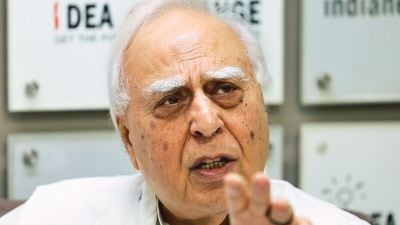It ruled against the deemed assent to bills.

The reference was made by President Droupadi Murmu under Article 143 of the Constitution. It carried 14 questions and central issue raised was whether the judiciary can set a fixed timeline for Governors to act on Bills passed by elected state assemblies?
The case stems from a ruling in April in which a two-judge bench of the Supreme Court held that the Tamil Nadu Governor’s delay in granting assent was unconstitutional and set specific timelines for action. The Centre, however, challenged this through the Presidential reference.
Here are the crucial arguments of all parties appearing before the top court:
Solicitor General Tushar Mehta for the Centre
Mehta argued that the judiciary too needs to respect the separation of powers and that solution to such problems lay in the political sphere. His key submissions:
- Judiciary is not solution on the question whether Governor withholding assent to the bill would make the legislature totally defunct. Solution is to amend the Constitution.
- Judiciary’s penchant to intervene in the matter “necessarily presupposes a belief that ultimately we will have to solve every problem”.
- If the Governor sits on the Bill, the solution lies in the political sphere. These are all political cases and such instances do happen and are solved through the democratic process.
- Certain problems are not solvable by the judiciary and they need to be solved by a political democratic process.
- When such a thing happens, it needs to be expected and accepted that there are constitutional functionaries who are responsible and responsive as they are answerable to the people everyday and at least every five years.
- For some problems the solution can come from only within the system.
Senior advocate Abhishek M Singhvi for Tamil Nadu
Singhvi justified the SC two-judge bench laying down time limit for the President and Governors, saying this was necessary in view of the “contemporary realities”. His key submissions:
Story continues below this ad
- Constitutional silences allow the court to operate in the unoccupied interstices where public interest so desires.
- Unless and until your lordships purposely interprets the Constitution in the present context of Article 200 by stipulating timelines, your lordships would really be reducing it to a mere formality in expectation of hope, a pious declaration but no real teeth.
- If there is no time limit in Articles 200 and 201, then it is a completely remedyless situation.
- The reference was to subvert the integrity of the Court and the principle of stare decisis (determining points of litigation).
Senior advocate Kapil Sibal for West Bengal
Sibal argued fixing timelines for the President and Governors to act on Bills forwarded by state legislatures will not amount to amending the Constitution but ensures that the constitutional machinery functions. His key submissions:
- The argument was… if you give a timeline, you are amending the Article. Of course not. You are ensuring the Article functions, that the constitutional machinery functions, not that you are amending it.
- The Governor says I am withholding the Bill because I believe it is unconstitutional and the State passes it again and he still withholds it. Then what happens?
- If somebody files a petition, the Governor cannot be made a party. Who will defend him?… so let’s not interpret the Constitution to make it unworkable. The language will not matter, the objective will matter.
- The Constitution is a living document. It owes its genesis to history but owes its allegiance to the future. Let’s not fall into a trap where Governor becomes an impediment in the functioning of the Constitution.
Senior Advocate Gopal Subramaniam for Karnataka
Subramaniam appearing for Karnataka said the reference seriously entrenches upon one of the most acknowledged coherent principles, which is democratic organ which enjoys executive power is the Cabinet form of government.
Story continues below this ad
- Law has taken a consistent position that both President and Governor are titular heads and ultimately power resides with the Cabinet.
- There is the principle of collective responsibility of the House. Both principles will be violated if the President or Governor is endowed with any discretionary power in the matter of clearing Bills.
- What union indirectly does is to abrogate the fulcrum of Constitution, which is Cabinet form of government and responsibility towards legislature.
- The phrase “as soon as possible” in Article 200 attaches a “sense of immediacy” to the Governor’s duty, and that the timelines in the April ruling indicated when judicial review would become available, not when automatic assent would occur.
Senior advocate K K Venugopal for Kerala
Venugopal said the Constitution requires Governor to act “as soon as possible” and this meant to act “forthwith” and not “as soon as convenient”. His key submissions:
- Even if the phrase was not there, if a money Bill is presented to him along with other Bills, he has to deal with the money Bill forthwith because the consequences of not assenting to a money Bill will be stupendous.
- Similar questions regarding Article 200 of the Constitution, which requires governors to act “as soon as possible” on state bills, had already been interpreted by the top court in cases concerning Punjab, Telangana and Tamil Nadu.
- Governor’s powers under Article 200 have been interpreted by the apex court time and again.
- For the first time, in the Tamil Nadu (State vs Governor) case, has a deadline been fixed for the assent of bills passed by the assembly. These issues are no longer res integra (undecided).
- Once judgments cover the field, a fresh presidential reference cannot be entertained.
- Government of India should have sought a formal review instead of invoking Article 143 to seek a reference by President.
Senior advocate Anand Sharma for Himachal Pradesh
Sharma, appearing said the doctrine of separation of powers is not an abstract theory but the foundation of the constitutional framework. His key submissions:
Story continues below this ad
- It is the legislature which is sovereign when it comes to law-making, and when it comes to interpretation, the judiciary is the final arbiter.
- President or Governor does not have any discretion.
- It was there in the draft constitution but it was done away with. The amendment moved by B R Ambedkar was to ensure that there is no delay.
- Governor’s office can’t be used to nullify the will of the people.
- States have their autonomy and they must not be belittled on the whims and fancies of the Governor.
President Murmu on May 13 invoked the Supreme Court’s advisory jurisdiction on the time limit to assent to bills. This was done under Article 143(1) of the Constitution, wherein the President may refer a “question of law or fact” to the Supreme Court for its opinion. The opinion, unlike a ruling, is not binding.
SC’s April 8 ruling fixed a three-month deadline for President to clear Bills reserved for her consideration by Governor.
That ruling, by a two-judge Bench headed by Justice J B Pardiwala, set aside Tamil Nadu Governor R N Ravi’s decision to withhold assent to 10 pending Bills.

































